Hannah Debuts in Western Force Women’s Team
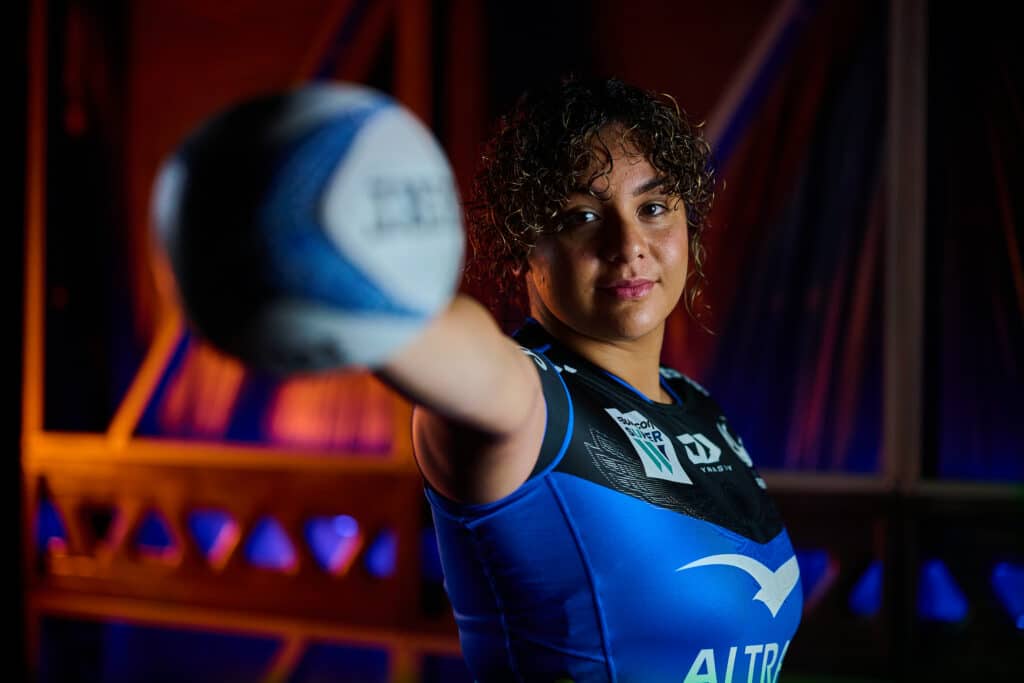
We take great joy in learning about the accomplishments of our staff, both in their professional endeavours and personal lives.
Religious Education Teacher, Hannah Palelei, was recently selected as part of the Western Force 2023 Super Rugby women’s team.
In recognition of this incredible achievement, we sat down with Hannah to learn more about when her rugby career began, some of the challenges she’s faced as a woman playing rugby, her most memorable moments and her long-term goals.
What does being a part of the Western Force 2023 Super Rugby women’s team mean to you?
Being part of the Western Force team this year has been a privilege and a surprise. My rugby journey commenced at the beginning of 2022 when I played my very first rugby game. I never thought I would make my debut in a professional team a year later. Being a part of the team means so much to me, my family, and the future generation of females in sports. To me, it’s a demonstration of my hard work and passion for the game. To my family, it’s being able to make them proud of my achievements. To the future generations of females in sports, it means them having a pathway and getting one step closer to equality within professional sports.
It is worth noting that Western Australia has yet to be recognised as a stronghold for rugby success historically. This year was a step in the right direction for the paving of women’s rugby here in WA. We broke a 15-game losing streak, and the Western Force women’s team created a clear avenue for emerging rugby stars within six months. The impact the team is making is truly amazing and something to follow.
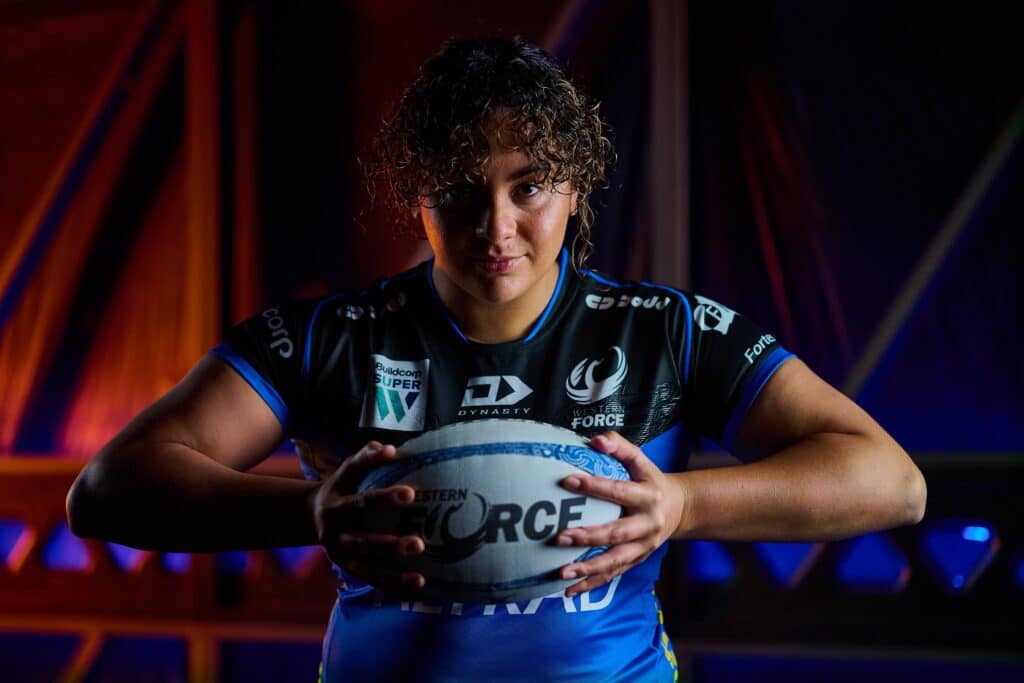
How did you start playing rugby, and what drew you to the sport?
I have always enjoyed watching rugby, whether league or union, but I never really considered playing it. I was a competitive swimmer for 12 years, so going from no contact to extreme contact was never a thought I had whilst swimming. At the end of 2021, I lost my passion for swimming and no longer wanted to compete. Although it was hard not calling myself ‘a swimmer’ after 12 years, my relationship with sport grew toxic, and my enjoyment towards swimming was gone. I wanted to try a team sport and find a passion for sport again. My best friend was already playing rugby, so I went with them to a training session and absolutely loved it.
What is the biggest challenge you face as a woman playing rugby?
It is no surprise to hear about the many challenges women face playing sports. Although it is an issue that women in sports face daily, there are some sports and organisations that are doing a lot to change this, rugby union is one of them. The biggest challenge I faced being a part of the Western Force team was time. Female rugby players don’t get the luxury of being paid as full-time employees even though it is a huge workload. This means all the girls in the team had to work other jobs. Juggling my work as a teacher plus my training load was very difficult. From teaching and training every day, I wasn’t left with much downtime. Although there were days when I had absolutely no motivation, this challenge aided in developing my time management skills as well as learning the importance of physical and mental recovery. Even though finding time was a challenge for me, I am so extremely grateful that I have been given the opportunity to pursue two of my passions, teaching and playing rugby.

Can you share a particularly memorable moment from your rugby career so far?
The most memorable moment in my rugby career so far was when I became a capped player of the Western Force. I received a call on a Tuesday from my coach saying he wanted to name me on the team for the upcoming Friday night game in Brisbane. The opportunity to train with the team was already a fantastic experience. Still, nothing will ever beat the feeling of running onto the field at Suncorp Stadium, which seats 52,500 people, broadcasted on STAN sports, representing my state for the first time.
In what ways has playing rugby impacted your life outside of the sport?
Rugby is a game where a lot of trust is needed. In every game, you are putting your body on the line. You need to trust that your teammates will do the same for you. Through this, I have made lifelong friendships. I also remain physically active in life outside of rugby, as I immerse myself in all different types of training. Not only do I train in rugby skills, but my schedule consists of strength training, plyometric training, CrossFit, running, swimming, boxing, and wrestling. Incorporating these different types of training into my everyday life helps me get the best out of my performance and remain interested and engaged.
What advice would you give to young women who are interested in playing professional sports?
Make sure you love what you do. Children start playing sports because it interests them, and they continue playing because they love and enjoy it. I believe playing sports professionally should always remain a passion rather than a job.
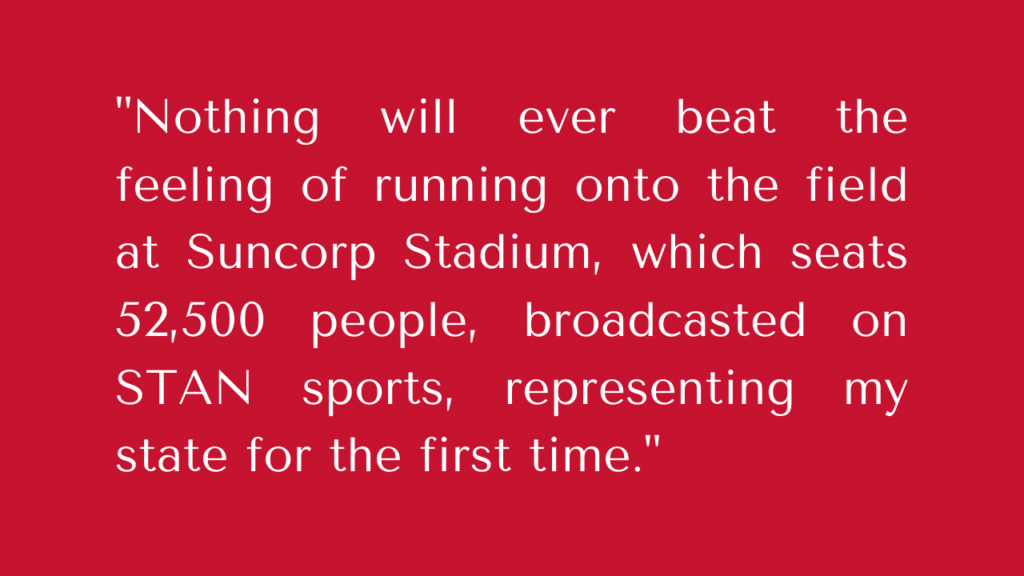
What are your goals for the future of your rugby career, both individually and as part of your team?
My individual goal is to represent Australia within the next five years as part of the Wallaroo team. Once I have played for Australia, my next goal would be to represent my Tongan culture and play for the Tonga Women’s National Rugby Union Team. Although I am Australian-born, I am so proud to be Tongan and representing my country and culture would be an honour. As still part of the Western Force, a goal for the future would be to win a premiership and put WA on the map for Women’s rugby.
How do you incorporate what you learn on the rugby field into the classroom?
My involvement in rugby has greatly improved my communication skills, which also comes in handy in the classroom. Dealing with different types of people on the field has taught me a lot. Some teammates listen right away, while others love to challenge you. This is the same throughout everyday life, particularly within the classroom. I believe through playing rugby, I can better talk to students with various personalities. I’ve also learned a lot about what makes a successful team. It’s evident when we gel as a team compared to when everyone plays individually. It’s the same in class. I can notice when groups work well together and when they don’t. In creating groups within lessons, I will always try to split up the different personalities as I have found that groups work better this way.
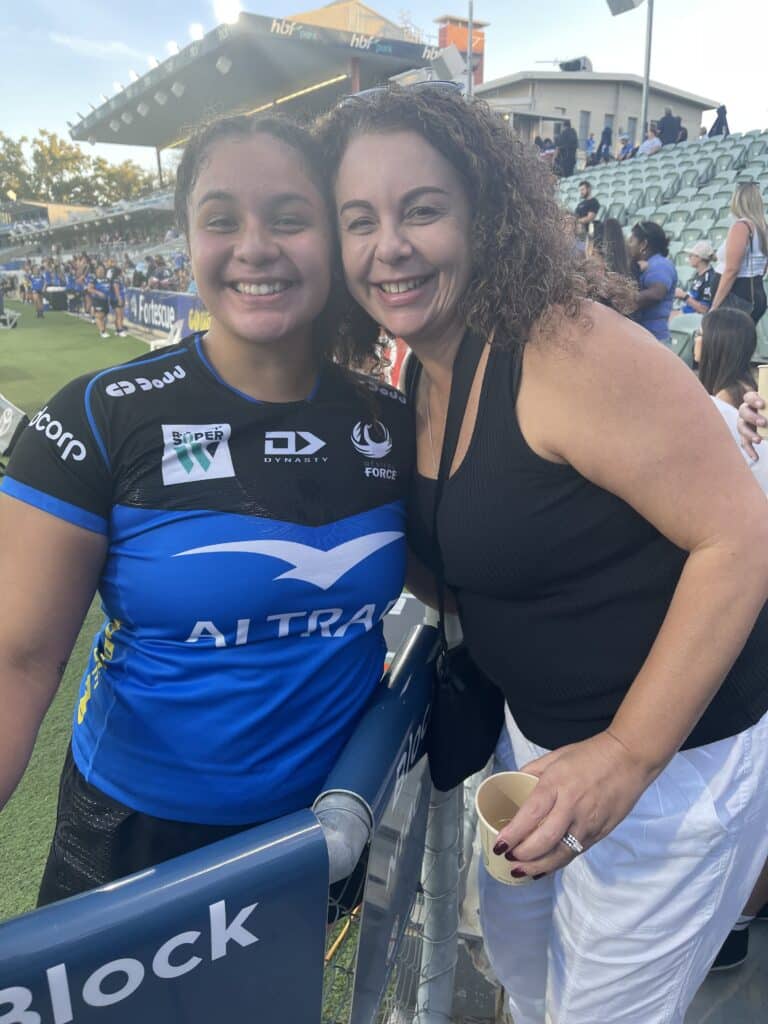
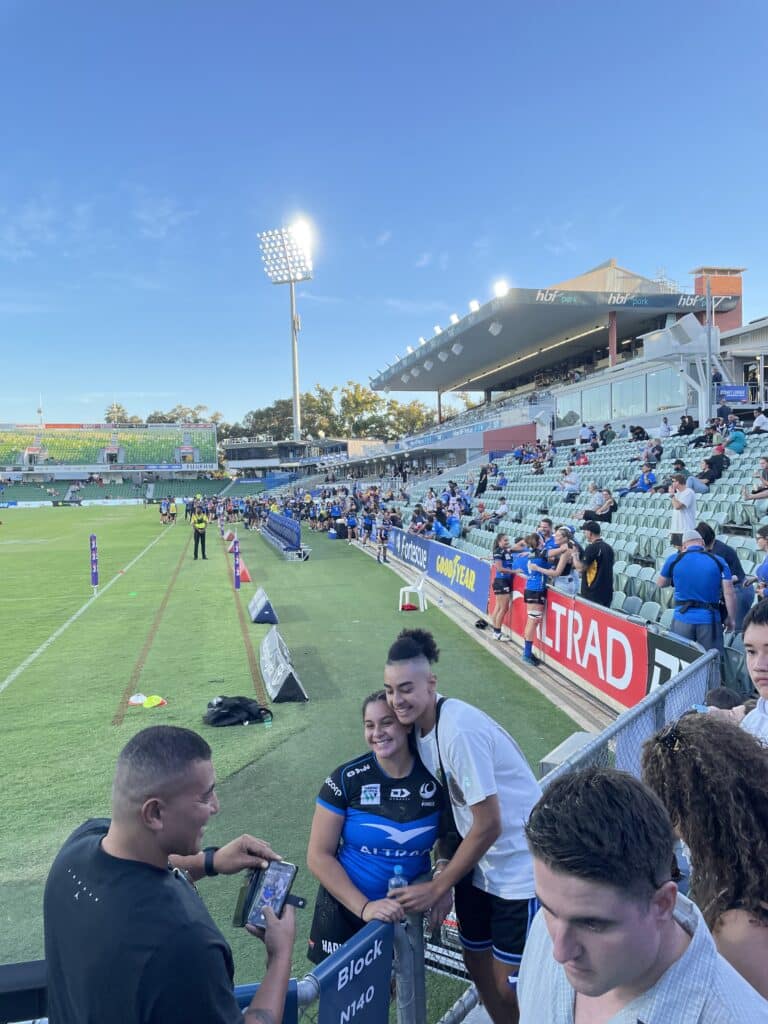
Hannah’s sporting journey is a powerful source of inspiration for women and young girls in our College Community. Students seeing women who have achieved greatness in sports can ignite dreams and aspirations, encouraging them to pursue their own athletic ambitions and break through barriers. So thank you, Hannah, for sharing your story with us!
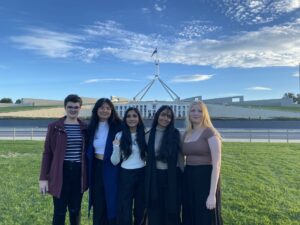
Lee-Elle’s Insights from the ‘Make it 16’ Forum
Lee-Elle Cooper is a passionate Year 12 student who advocates for youth engagement and political participation. She has recently returned from the Make It 16 Forum in Canberra.

With Laurissa Knowles From Valley Depths to Mountain Peaks (1993)
Laurissa Knowles (1993) has had an incredible career journey so far, from Santa Maria College Teacher to Celebrant and Councillor.

Elevating Spaces: Diana Ellis’ Signature Touch & Architecture Magic
What happens when you mix a love for art, travel, nature, and creativity with construction and building? You get the essence of Diana Ellis’ career!
- Featured, sport, staff
Author: Santa Maria College
Santa Maria College is a vibrant girls school with a growing local presence and reputation. Our Mission is to educate young Mercy women who act with courage and compassion to enrich our world. Santa Maria College is located in Attadale in Western Australia, 16 km from the Perth CBD. We offer a Catholic education for girls in Years 5 – 12 and have 1300 students, including 152 boarders.







